Filter by

Dimensions of heritage and memory: multiple Europes and the politics of crisis
edited by Christopher Whitehead, Susannah Eckersley, Gönül Bozoglu, and Mads Daugbjerg.
- Edition
- -
- ISBN/ISSN
- 9780429958465
- Collation
- 1 online resource
- Series Title
- Critical heritages of Europe
- Call Number
- -
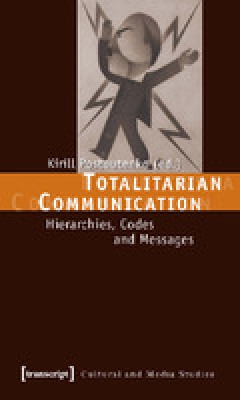
Totalitarian Communication: Hierarchies, Codes and Messages
By using history and theory of communication as an integrative methodological device, this book reaches out to those properties of totalitarian society which appear to be beyond the grasp of specific disciplines. Furthermore, this functional approach allows to extend the analysis of communicative practices commonly associated with fascist Italy, Nazi Germany and Soviet Union, to other locations…
- Edition
- -
- ISBN/ISSN
- 9783839413937
- Collation
- 316p.: ill.
- Series Title
- -
- Call Number
- 320.53 TOT t
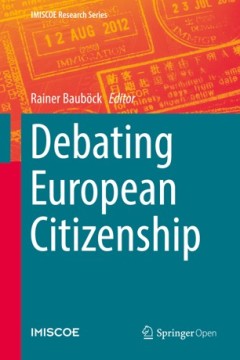
Debating European citizenship
This open access book raises crucial questions about the citizenship of the European Union. Is it a new citizenship beyond the nation-state although it is derived from Member State nationality? Who should get it? What rights and duties does it entail? Should EU citizens living in other Member States be able to vote there in national elections? If there are tensions between free movement and soc…
- Edition
- -
- ISBN/ISSN
- 9783319899053
- Collation
- xviii, 313p. : ill.
- Series Title
- -
- Call Number
- 323.6094 DEB d
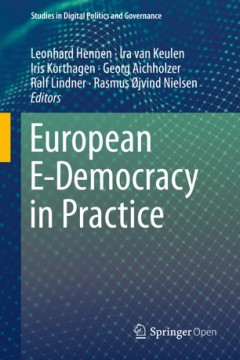
European e-democracy in practice
This open access book explores how digital tools and social media technologies can contribute to better participation and involvement of EU citizens in European politics. By analyzing selected representative e-participation projects at the local, national and European governmental levels, it identifies the preconditions, best practices and shortcomings of e-participation practices in connection…
- Edition
- -
- ISBN/ISSN
- 9783030271848
- Collation
- xi, 359p. : ill.
- Series Title
- -
- Call Number
- 323.042094 EUR e

Transformation of solidarity: changing risks and the future of the Welfare state
This study investigates the consequences of processes of social individualisation and economic globalisation for welfare state solidarity. Solidarity is defined as the willingness to share risks. The institutions of the welfare state, such as social security or health care insurance, are founded on the willingness of citizens to share risks and organize solidarity between the young and the old,…
- Edition
- -
- ISBN/ISSN
- 9789089643834
- Collation
- 214 p. : ill. ; 24 cm.
- Series Title
- Changing welfare states
- Call Number
- 301 VEE t
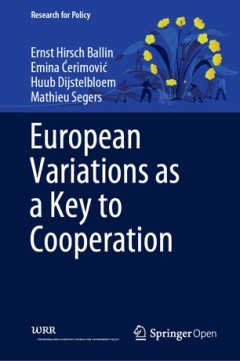
European variations as a key to cooperation
This Open Access book offers a novel view on the benefits of a lasting variation between the member states in the EU. In order to bring together thirty very different European states and their citizens, the EU will have to offer more scope for variation. Unlike the existing differentiation by means of opt-outs and deviations, variation is not a concession intended to resolve impasses in negotia…
- Edition
- -
- ISBN/ISSN
- 9783030328931
- Collation
- xx, 177p. : ill.
- Series Title
- -
- Call Number
- 337.142 EUR e
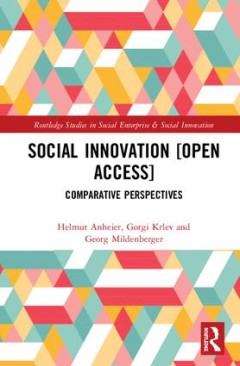
Social innovation : comparative perspectives
Social Innovation: Comparative Perspectives investigates socio-economic impact. Since it is hard to establish causality and to measure social properties when investigating impact, especially at the level of society, the book narrows down impact to one priority aspect: social innovation – understood as organizations’ capacity to generate novel ideas, ways and means of doing things, of addres…
- Edition
- -
- ISBN/ISSN
- 9781315158020
- Collation
- xix, 297p. : ill.
- Series Title
- -
- Call Number
- 306.3094 SOC s
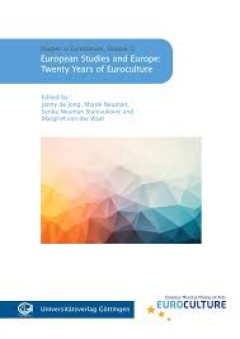
European Studies and Europe: Twenty Years of Euroculture
In 1998, the Master’s programme Euroculture started with the aim to offer, amid the many existing programmes that focused on European institutional developments, a European studies curriculum that puts the interplay of culture, society and politics in Europe at the heart of the curriculum. Among other topics, the programme focused on how Europe and European integration could be contextualised…
- Edition
- -
- ISBN/ISSN
- 9783863954314
- Collation
- 227 p.
- Series Title
- -
- Call Number
- 370 EUR e
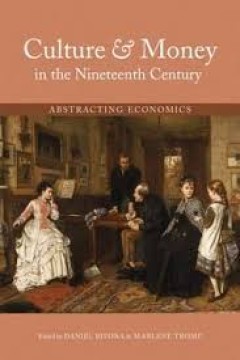
Culture & money in the nineteenth century: abstracting economics
Since the 1980s, scholars have made the case for examining 19th-century culture, particularly literary output, through the lens of economics. Bivona and Tromp have collected contributions that push New Economic Criticism in new directions.Spanning the Americas, India, England, and Scotland, this volume adopts a global view of the cultural effects of economics and exchange. Contributors use the …
- Edition
- -
- ISBN/ISSN
- 9780821421963
- Collation
- viii, 230 pages ; 24 cm.
- Series Title
- Series in Victorian studies
- Call Number
- 306.009034 BIV c
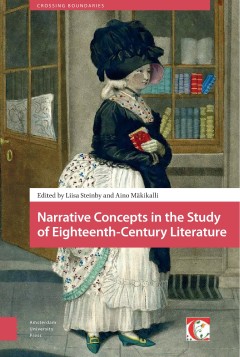
Narrative concepts in the study of eighteenth-century literature
This collection of essays studies the encounter between allegedly ahistorical concepts of narratology and eighteenth-century literature. It questions whether the general concepts of narratology are as such applicable to historically specific fields, or whether they need further specification. Furthermore, at issue is the question whether the theoretical concepts actually are, despite their appe…
- Edition
- -
- ISBN/ISSN
- 9789048527380
- Collation
- 314p. : ill.
- Series Title
- -
- Call Number
- 820.9005 NAR n
 Computer Science, Information & General Works
Computer Science, Information & General Works  Philosophy & Psychology
Philosophy & Psychology  Religion
Religion  Social Sciences
Social Sciences  Language
Language  Pure Science
Pure Science  Applied Sciences
Applied Sciences  Art & Recreation
Art & Recreation  Literature
Literature  History & Geography
History & Geography